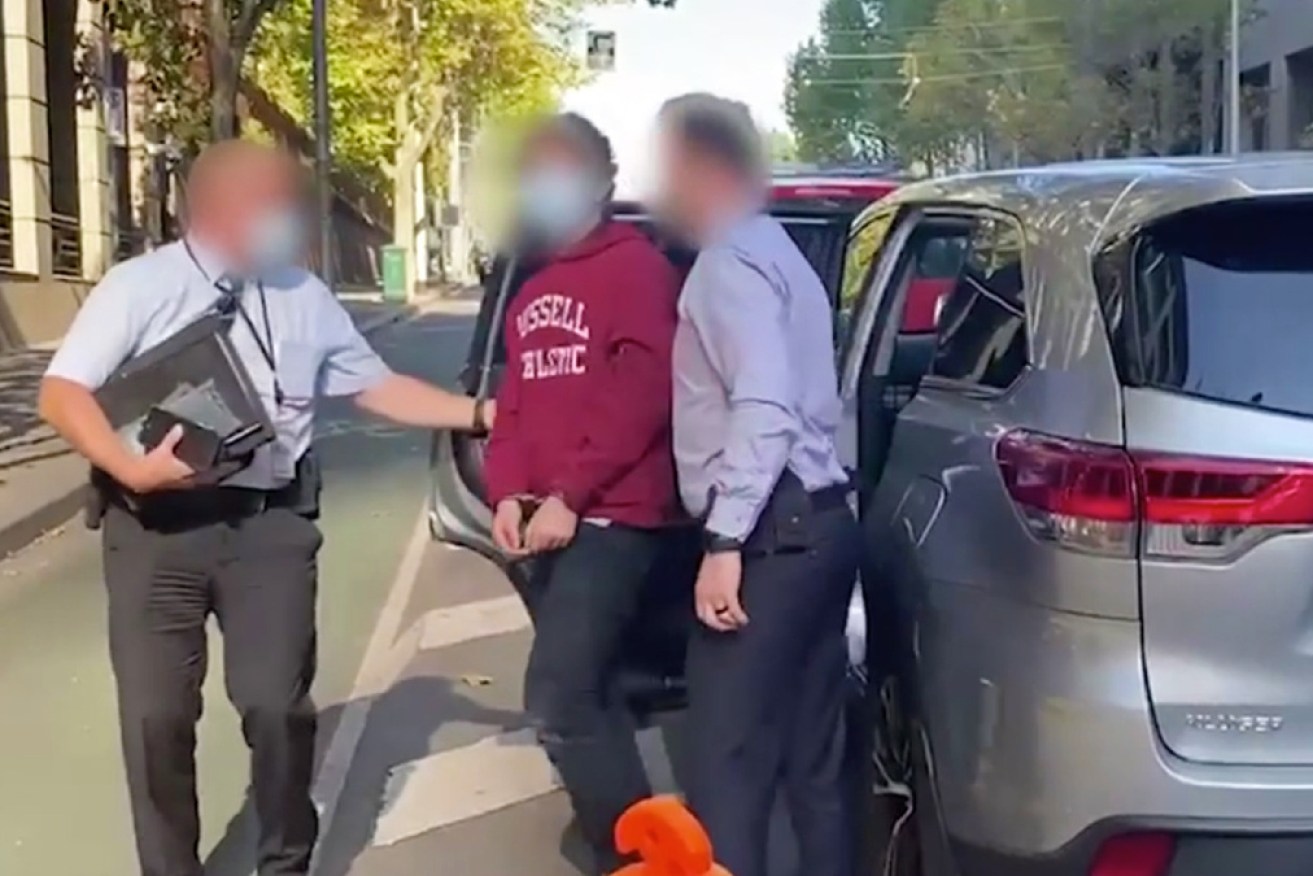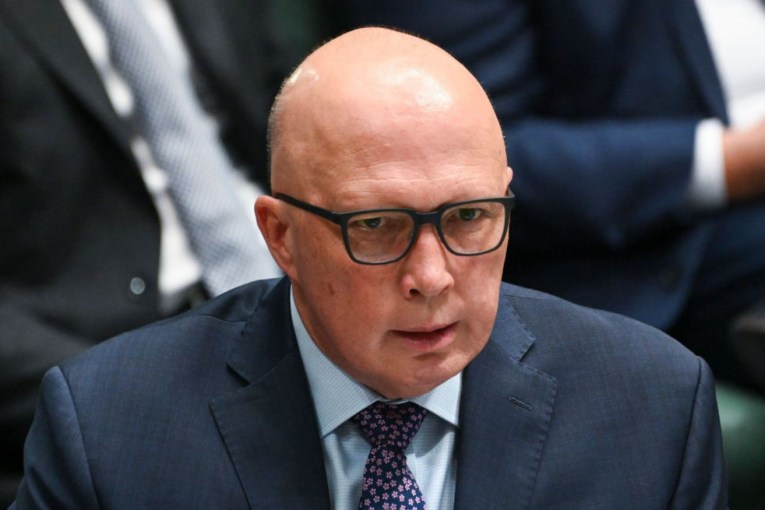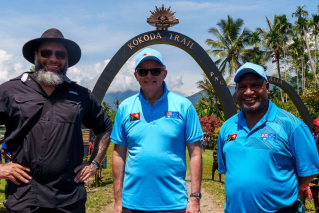ASIO chief: COVID pandemic has been a shot in the arm for extremists

Police arrest a 19-year-old in Melbourne over an alleged terror plot. Photo: AAP
Violent extremists and foreign spies have taken to the internet during the coronavirus pandemic, posing a new range of challenges for Australia’s top intelligence agency.
Australian Security Intelligence Organisation director-general Mike Burgess delivered his second annual threat assessment in Canberra on Wednesday.
Mr Burgess said for those intent on violence, more time at home online meant “more time in the echo chamber of the internet on the pathway to radicalisation”.
“They were able to access hate-filled manifestos and attack instructions, without some of the usual circuit breakers that contact with community provides,” he said.
His comments came after two men from the Melbourne suburb of Epping, along with a 16-year-old Pascoe Vale boy, were arrested in separate joint counter-terrorism raids in Melbourne’s north on Wednesday.
The 19-year-old will appear before Melbourne Magistrates’ Court on Thursday charged with an attempted terrorist act, intentionally causing injury, an act in preparation of a terrorist act and membership of a prescribed terrorist organisation (ISIS).
The 20-year-old is also due to appear before Melbourne Magistrates’ Court on Thursday charged with one count of an attempted terrorist act.
The 16-year-old boy was released without charge.
Investigators believe the trio may have been motivated by Islamic “religious extremism”.
Mr Burgess explained how “extreme right-wing propaganda used COVID to portray governments as oppressors, and globalisation, multiculturalism and democracy as flawed and failing”.

There was little good news in the briefing by ASIO boss Mike Burgess. Photo: AAP
“Islamic extremist narratives portrayed the pandemic as divine retribution against the West for the perceived persecution of Muslims.”
He said in the case of foreign spies “the lack of opportunity for international travel and reduced social mobility meant their tradecraft evolved, and they increased their online activity and approaches”.
Some of Australia’s adversaries were seeking to undermine and exploit Australia’s pandemic recovery.
“We have already seen extremists trying to stoke social divisions, and foreign intelligence services wanting intelligence about Australia’s key export, technology and research industries.”

Islamic State videos, like the graphic images of hostage Steven Sotloff’s 2014 beheading, continue to draw recruits. Photo: AP
Mr Burgess said ASIO had also become aware of an Islamic State video last year which referenced the Australian bushfire crisis to encourage arson attacks in the West.
“It also featured a firearm – similar to the weapon used by the Christchurch attacker – with inscriptions such as ‘today we invade you in your own homes’ and ‘the Islamic State is remaining’.”
The intelligence chief last year called out right-wing extremism as being a growing threat.
“Since then, ideological extremism investigations have grown from around one-third of our priority counter-terrorism caseload, to around 40 per cent,” he said.
“The average age of these investigative subjects is 25, and I’m particularly concerned by the number of 15- and 16-year-olds who are being radicalised. They are overwhelmingly male.”

This swastika imposed on a map of Australia is a reminder that right-wing extremists are out there and growing. Photo: Facebook
The COVID-19 pandemic had reinforced extremist beliefs about societal collapse and a “race war”, he said.
“An ideologically motivated terrorist attack in Australia remains plausible, most likely by a lone actor or small cell rather than a recognised group, and using a knife or a vehicle rather than sophisticated weapons.”
The ASIO boss revealed his agency is changing its language, sorting people who pose violent threats into two categories: religiously motivated violent extremism and ideologically motivated violent extremism.
Labels like ‘left’ and ‘right’ often distract from the real nature of the threat,’’
– ASIO chief Mike Burgess
He added that some Muslim groups found the term “Islamic extremist” misrepresentative.
Espionage and foreign interference continued to be levelled at not only the federal government but all Australian states and territories.
Last year ASIO investigated a “nest” of foreign spies targeting relationships with current and former politicians, a foreign embassy and a state police service.
“They successfully cultivated and recruited an Australian government security clearance holder who had access to sensitive details of defence technology.”
ASIO investigated, identified and verified the activity, cancelling the government employee’s security clearance, confronted the foreign spies, and “quietly and professionally removed them from Australia”, Mr Burgess said.








